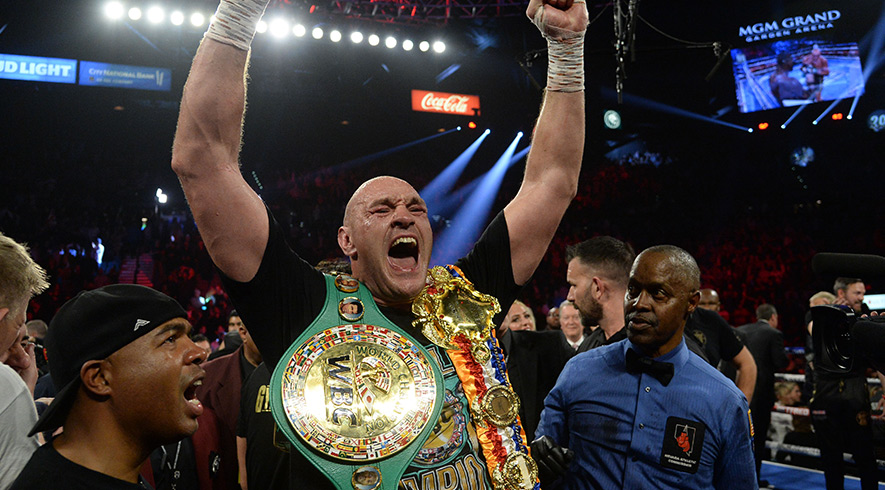by Charles Jay
In the Muhammad Ali Boxing Reform Act, which passed on May 26, 2000, Congress reported these findings, among others:
* “That the lack of any “centralized industry organization” has led to “repeated occurrences of disreputable and coercive business practices in the boxing industry, to the detriment of professional boxers nationwide.”
* That a big concern involved boxers who were being “subjected to contract terms and business practices which may violate State regulations, or are onerous and confiscatory.”
* That “promoters who engage in illegal, coercive, or unethical business practices can take advantage of the lack of equitable business standards in the sport by holding boxing events in States with weaker regulatory oversight.”
“It is necessary and appropriate to establish national contracting reforms to protect professional boxers and prevent exploitive business practices, and to require enhanced financial disclosures to State athletic commissions to improve the public oversight of the sport.”
Then there’s a lot of language about “Protecting Boxers From Exploitation,” “Protection From Coercive Contracts,” “Disclosures to the Boxer” and the like.
It was no secret that the champion of the bill was Senator John McCain, who allegedly did some boxing as a youth and got a lot of great seats when he went to the major fights.
In that bill, there was also a provision that allowed for the fighter, if he so desired, to assert some control over his career:
Under Section 5, where the “Firewall Between Promoters and Managers” makes it unlawful for a promoter to have a direct or indirect financial interest in the management or promotion of a boxer, an exception is noted, making clear that it “does not prohibit a boxer from acting as his own promoter or manager.”
That remains the law, but in the last version of the Professional Boxing Amendments Act that McCain failed to get to a vote of the House, there was something changed. Suddenly a fighter was NOT going to be allowed to be his own promoter.
In Section 17 of McCain’s new bill (the Professional Boxing Amendments Act of 2012), you can see an amendment of this sort re-inserted:
‘(b) Boxers- A boxer may not own or control, directly or indirectly, an entity that promotes the boxer’s bouts if that entity is responsible for (1) executing a bout agreement or promotional agreement with the boxer’s opponent; or (2) providing any payment or other compensation to —
(A) the boxer’s opponent for participation in a bout with the boxer; (B) the boxing commission that will regulate the bout; or (C) ring officials who officiate at the bout.’.
Of course, this would not apply to any fighter who is already his own promoter, as they’d be grandfathered in, but it would curtail the aspirations of anyone who elected to take that bold step.
The inside dope is that there was some lobbying on the part of Don King and Bob Arum with Nevada Senator Harry Reid, who in turn convinced McCain to take it out as a condition of his support for the bill back in 2004. Well, Reid’s still around, and now he’s the Senate Majority Leader.
King and Arum are still around, as are others, and there is some territory to protect.
One can see the ostensible purpose of the amendment. Certainly on the surface, one can view a fighter paying his opponent, or paying ring officials, with skepticism.
But it really all depends on what it’s for, doesn’t it?
Naturally when a fighter is operating as his own promoter, he is going to pay the opponents and render fees to the officials, through the commission, because that is a customary part of what a promoter does.
The implication that the fighter, functioning as promoter, would, or might normally be expected, to be engaged in something nefarious simply by acting in that capacity doesn’t show a whole lot of faith in the people whose interests McCain or Reid are vowing to protect.
We’d hope that someone like McCain would have consulted with a wide range of people associated with boxing before drafting something like this, and anyone associated with the game could have informed him that if a fighter was up to something underhanded as a promoter, he would do it through a beard.
And what makes the fighter’s position so much different from any given promoter, in any given situation where he feels he has a substantial financial interest in the matter, as concerns the concept of questionable dealings?
The difference, one would imagine, is that the fighters didn’t get to lobby McCain or Reid, both of whom, it would appear, have done something to throw them under the bus.
Of course, promoters like Arum, King and others could be excused if they were rooting for the bill to go through with that provision. Keep in mind that in 2001, Arum lost Oscar De La Hoya, who subsequently promoted himself through Golden Boy. Fighters who ascend to a level where they can be their own promoter and strike their own deals with a network, or with other fighters, are certainly a threat to the power structure.
McCain seems intent on keeping that power structure in place. But isn’t that counterintuitive to the purpose of the bill itself?
McCain might be purporting to protect the “integrity” of the sport, but inasmuch as that effort is misplaced in this case, should it outweigh the chance for a fighter to do what they can to control his own destiny? Look, no one is saying that it’s the smartest move in the world for a fighter to take the promotional reins himself, and many failed miserably. But does that mean anyone should begrudge them the opportunity? Let them swing away. They would market themselves and their services, unbound to anyone else. That’s free enterprise; the American dream, if you will.
Surely McCain uttered quite a bit about the “American dream” and “free enterprise” when he was running for president. We’ve also heard him go on and on about “the best interests of fighters.”
At heart, though, he’s just a politician, and in the end the politics will usually get the “decision” over the fighters.









droversointeru
11/04/2024 at 3:44 pm
Merely wanna remark on few general things, The website design and style is perfect, the written content is rattling fantastic. “The stars are constantly shining, but often we do not see them until the dark hours.” by Earl Riney.